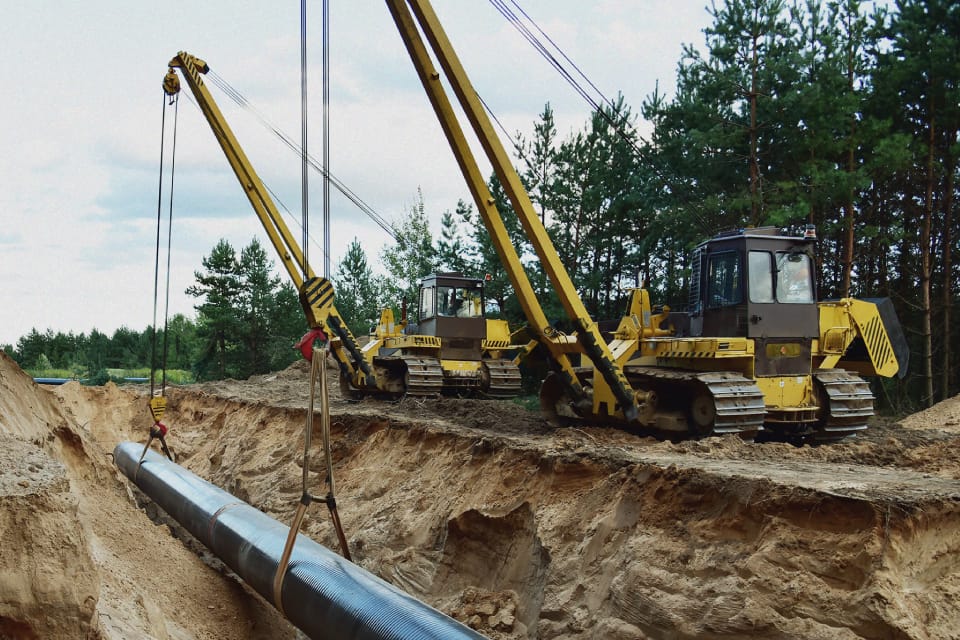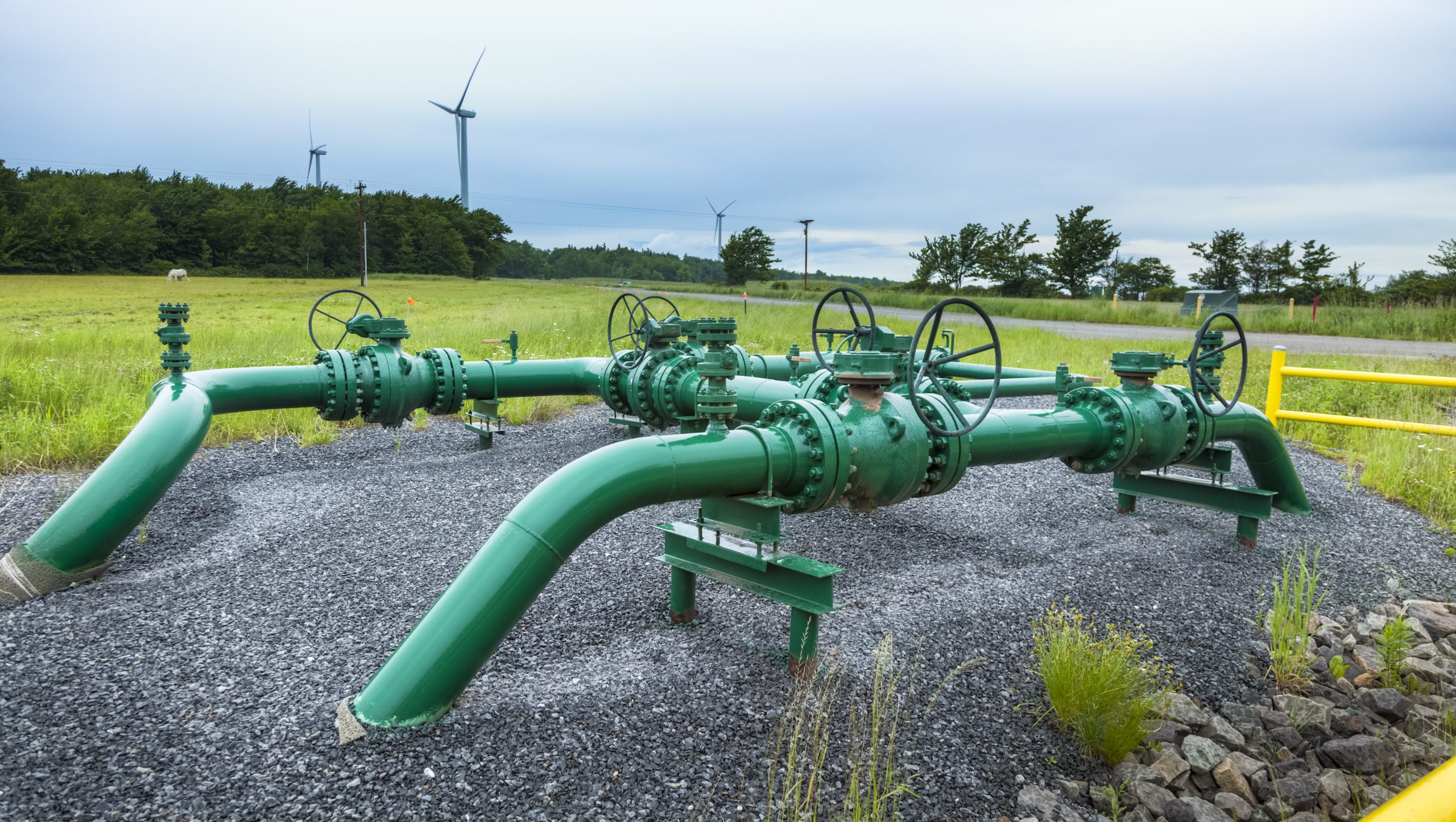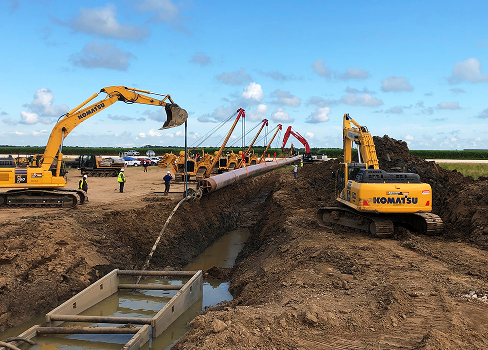The Vital Guide to Understanding Pipeline Construction Services and Their Importance
Pipeline Construction services are basic to the transport of necessary sources such as gas, water, and oil. These solutions include precise planning and implementation, adhering to rigorous safety and security and ecological requirements. As the industry adapts to modern-day difficulties, recognizing its elements and implications becomes significantly vital. What aspects add to the expanding importance of these solutions in today's economy? The adhering to areas will check out these crucial facets.
Introduction of Pipeline Construction Providers
Pipeline Construction solutions encompass a series of activities essential for the setup and maintenance of pipelines made use of to transfer numerous compounds, consisting of gas, water, and oil. These services are important for guaranteeing the risk-free and efficient movement of sources from one location to one more. The process commonly starts with extensive planning and layout, which considers governing requirements, environmental factors to consider, and logistical challenges.
When preparation is full, excavation and grading of the land are conducted to prepare the site for Pipeline setup. This is adhered to by the actual laying of the pipes, which includes welding or signing up with areas with each other to create a continuous flow path. After setup, strenuous screening is performed to guarantee stability and security. Upkeep solutions are also offered to deal with any type of problems that may emerge over time. Generally, Pipeline Construction solutions play a pivotal role in supporting facilities for power and water circulation.
Key Components of Pipeline Construction
A successful Pipeline Construction job depends on a number of crucial components that ensure the effective and risk-free setup of the Pipeline system. Initially, thorough site evaluations are vital, as they determine the environmental and geographical elements that may influence Construction. Next, the selection of appropriate products, such as pipelines and installations, is necessary for securing toughness and compatibility with the transported materials.
Moreover, progressed Construction methods, including trenchless modern technology and directional boring, enhance performance and lessen environmental influence. Effective project management is another crucial component, coordinating labor, equipment, and timelines to satisfy project goals.
In addition, communication amongst stakeholders, consisting of designers, contractors, and neighborhood authorities, assurances positioning on job specs and requirements. Extensive high quality control steps throughout the Construction procedure make certain compliance with market criteria and make the most of the Pipeline's operational life expectancy. Jointly, these components develop the backbone of a successful Pipeline Construction task.
Safety Specifications and Rules in Pipeline Construction

Regulative bodies, such as the Occupational Safety And Security and Wellness Management (OSHA) and the Pipeline and Hazardous Materials Safety Management (PHMSA), stated details needs that govern Construction practices. These include procedures for tools use, worker training, and emergency situation feedback procedures. By carrying out these requirements, Construction firms not only secure their employees however additionally safe public count on. Eventually, strenuous security actions add to the lasting success of Pipeline jobs, guaranteeing they fulfill both environmental and functional assumptions.
Ecological Factors To Consider in Pipeline Projects

Ecological considerations are essential to the planning and implementation of Pipeline jobs. These projects need to evaluate potential effect on environments, water resources, and neighborhood wildlife. Conducting detailed environmental impact evaluations (EIAs) is important, permitting stakeholders to determine and mitigate threats before Construction begins.
Safeguarding sensitive areas, such as wetlands and habitats, often needs executing details style attributes or alternate routing to reduce disturbance. Furthermore, Pipeline drivers are tasked with establishing strategies for stopping leaks and spills, which can have devastating results on the environment.
Interaction with neighborhood communities is necessary, as public concerns can cause project adjustments that boost environmental management. Conformity with policies set by ecological agencies guarantees that jobs fulfill sustainability standards, promoting an equilibrium between infrastructure requirements and ecological preservation. Inevitably, dealing with ecological factors to consider not only safeguards nature but likewise advertises area trust fund and task practicality.
The Function of Modern Technology in Pipeline Construction
Technology plays an essential function in modern-day Pipeline Construction, enhancing effectiveness and accuracy. Advanced checking methods enable for precise planning and execution, minimizing environmental impact and useful reference project delays. Additionally, the combination of automation and robotics enhances procedures, lowering labor prices and improving security on Construction sites.
Advanced Checking Methods
Advanced checking methods play an essential function in the successful execution of Pipeline Construction projects. These approaches utilize innovative modern technology to assure exact mapping and analysis of the surface where pipes will be installed. Strategies such as Geographic Details Equipment (GIS), LiDAR (Light Detection and Ranging), and 3D modeling enable designers to envision and examine the landscape, identifying potential barriers and environmental concerns. By making use of these sophisticated tools, groups can improve precision ready and placement, greatly lowering the risk of mistakes during Construction. Additionally, real-time data collection enables for immediate changes and informed decision-making throughout the task lifecycle. Ultimately, these evaluating innovations add to enhanced performance, safety, and sustainability in Pipeline Construction initiatives.
Automation and Robotics

Economic Impact of Pipeline Facilities
Pipeline framework plays an important role in shaping local economic situations and assisting in profession. By giving a trustworthy ways of transporting oil, gas, and various other assets, pipelines minimize transport costs and boost supply chain efficiency. This facilities brings in investment, promotes work production, and fosters economic development in bordering locations.
Furthermore, the Construction and upkeep of pipes add considerably to local economic climates, developing countless job opportunity in different fields, from engineering to labor. The increase of jobs usually results in enhanced investing in local organizations, additionally reinforcing economic activity.
Additionally, pipelines enhance power protection by making certain a secure supply of sources, which is essential for household requirements and industrial operations. As regions become interconnected via Pipeline networks, they gain accessibility to more comprehensive markets, increasing competitiveness and economic resilience. The financial effect of Pipeline infrastructure is multifaceted, affecting both instant local economies and more comprehensive local development.
Future Fads in Pipeline Construction Providers
The future of Pipeline Construction services is developing in response to article technical innovations, governing changes, and expanding ecological considerations. Developments such as robotics and drones are streamlining examination and maintenance processes, enhancing safety and security and performance. Automation is positioned to minimize labor expenses and boost accuracy in Construction operations. Additionally, the enhancing emphasis on sustainability is prompting business to adopt environmentally friendly products and techniques, aligning with global efforts to decrease carbon impacts.
Regulatory frameworks are likewise adapting to address environmental effects, pressing for greater transparency and liability in Pipeline tasks. The combination of clever technologies, including real-time tracking systems, is anticipated to boost the reliability and performance of Pipeline networks. As energy demands change towards eco-friendly resources, Pipeline Construction services will likely see a rise in jobs connected to biofuels and hydrogen transport. In general, these patterns suggest a transformative duration for the Pipeline Construction sector, concentrated on innovation and sustainability.
Frequently Asked Concerns
What Sorts of Pipelines Are Frequently Created?
Various sorts of pipes are generally created, consisting of oil, sewage, gas, and water pipelines - Pipeline Construction Services. Each offers distinctive purposes, assisting in the transportation of important sources throughout areas while sticking to safety and ecological policies
How much time Does a Typical Pipeline Job Take?
The duration of a common Pipeline job differs considerably, often ranging from several months to a couple of years. Variables affecting this timeline consist of job complexity, regulative approvals, and ecological factors to consider that must be resolved.
That Controls Pipeline Construction Business?
Pipeline Construction companies are controlled by various government, state, and neighborhood companies, including the Pipeline and Hazardous Products Security Administration (PHMSA) and state utility payments, making sure compliance with safety and ecological criteria throughout the Construction process.
What Are Common Products Used in Pipeline Construction?
Usual materials used in Pipeline Construction consist of pvc, steel, and polyethylene. Each material offers unique advantages such as resistance, adaptability, and sturdiness to deterioration, making them appropriate for numerous applications in transferring liquids and gases.

Just How Are Pipeline Construction Prices Approximated?
Pipeline Construction expenses are estimated by analyzing factors such as product you could try this out expenditures, labor rates, project complexity, environmental factors to consider, and governing demands (Pipeline Construction Services). Accurate price estimate assurances efficient budgeting and project planning throughout the Construction procedure
Pipeline Construction services include a range of tasks crucial for the installment and maintenance of pipelines made use of to move different compounds, including water, gas, and oil. An effective Pipeline Construction job depends on several vital parts that ensure the efficient and safe setup of the Pipeline system. Advanced surveying strategies play a crucial duty in the successful implementation of Pipeline Construction tasks. Numerous kinds of pipelines are commonly constructed, consisting of oil, gas, water, and sewer pipelines. Pipeline Construction costs are estimated by assessing factors such as material expenditures, labor prices, job intricacy, environmental considerations, and regulatory demands.